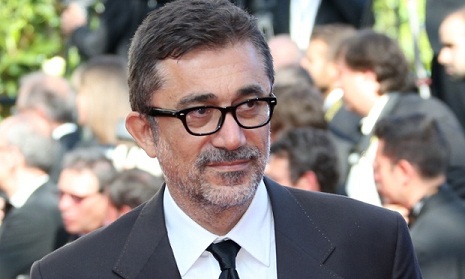But the organisers’ decision to comply with the ministry’s orders prompted immediate outrage. On Monday, more than 100 film-makers, including the most recent laureate of the Palme d’Or in Cannes, Nuri Bilge Ceylan, published an open letter in the Turkish media, accusing the government of “oppression and censorship”.
“We, the undersigned film-makers, oppose the imposition [of this regulation] as a tool of censorship,” the letter said, claiming there was a “political agenda” behind the decision to ban Bakur. “The festival programme was announced weeks ago, and other local films that did not have the registration certificate were screened without problems.”
In total, 23 Turkish film-makers withdrew their films from the festival, and the festival organisers announced on Monday that all competitions – and the closing ceremony – had been cancelled.
Ertugrul Mavioglu, journalist and co-director of Bakur together with documentary film-maker Çayan Demirel, said he was impressed by the reactions triggered by the de facto ban of his film from the festival.
“This is the first time that there is such massive solidarity against censorship, and of course I see this as a positive,” he said, adding that he was disappointed by the stance of the festival organisers. “They should have cancelled the whole festival immediately instead of complying with the ministry’s bogus request,” he said.
According to the Istanbul Foundation for Culture and Arts (IKSV), the organiser of the festival, Bakur was removed from the programme because the film-makers had failed to obtain the necessary commercial screening licence for their film. Azize Tan, director of the festival, said that the organisers had previously conducted negotiations with the ministry to change the licence regulation, in place since 2004 and applicable only to locally produced films.
But to Mavioglu, the government’s last-minute reminder of the licence rule was a thinly veiled attempt to cover up the outright ban of a film that Ankara might find uncomfortable.
“It is astounding that they cannot even deal with [the PKK and the Kurdish conflict in Turkey] on screen”, he said. “On the one hand they talk about a peace process, but on the other hand they are unable to tolerate any points of view that differ from their own.”
The ministry of culture was not immediately available for comment.
Turkish film-makers and other members of the sector feel that the room for creative expression is growing increasingly small under growing government pressure. Recalling the Turkish government’s intervention in the prestigious annual Antalya Golden Orange film festival last year, when a documentary about the Gezi protests of 2013 was removed from the programme, documentary film-maker Bingöl Elmas expressed her worry about the future of the creative sector in Turkey.
“The government tries to create their own partisan cinema and a pool of partisan film-makers as they have already done with the media [in Turkey]”, said Elmas, who withdrew her contribution Komsu Komsu Hu Hu (Hey Neighbour!) from the Istanbul festival. “As a film-maker I cannot remain silent in the face of such censorship.”
The discussion also prompted the online daily Radikal to cancel its annual Radikal People’s prize. Cem Erciyes, the newspaper’s publishing director, said that “art, creativity and freedom of expression cannot exist in the presence of censorship”, and added that “no one would want to live in such a country, and no one does. We say ‘no’ to censorship, the state’s intervention and an oppressed festival.”
Ertugrul Mavioglu remained undeterred: “The government has still not understood that censoring a film, a book, or a work of art does not make it go away.”
More about:
















































